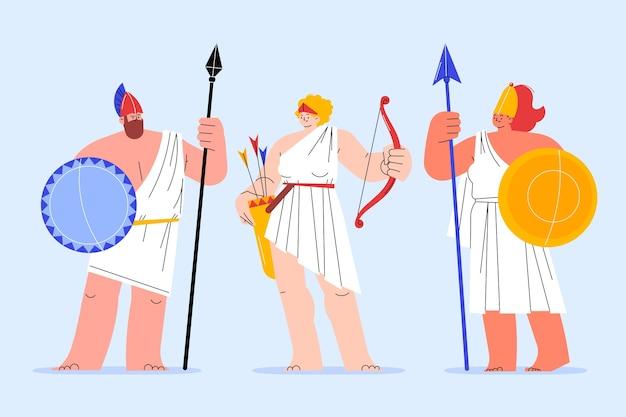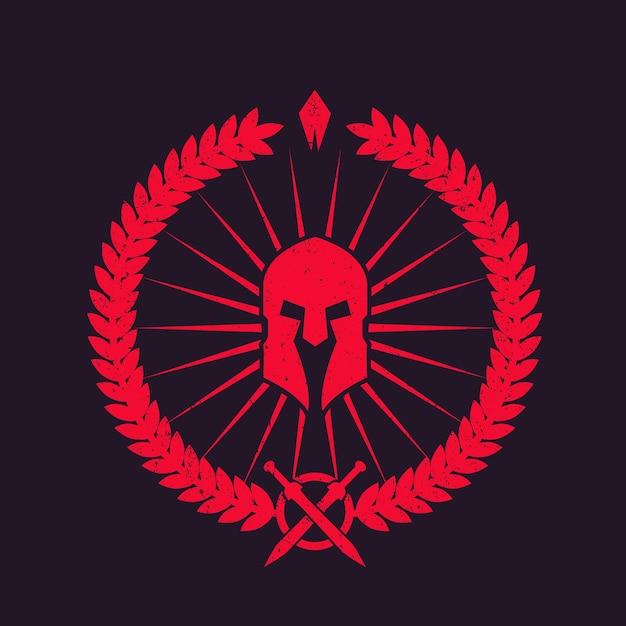The history of ancient Greece is replete with fascinating stories of powerful city-states that rose to prominence and left an indelible mark on civilization. Among these, Athens and Sparta stand out as two of the most renowned and influential city-states. While they both shared Greek heritage, their societies and values diverged significantly, providing a captivating study in contrasts.

What Made Athens and Sparta Unique?
Athens, often hailed as the birthplace of democracy, was a city-state known for its intellectual and cultural achievements. The Athenians placed a high value on education, philosophy, and the arts. On the other hand, Sparta, a society built on a rigid military structure, revered discipline, strength, and military prowess.
In this blog post, we will delve into the similarities and differences between Athens and Sparta, exploring their respective education systems, cultural values, religious beliefs, and notable features. By examining these key aspects, we can gain a deeper understanding of how these powerful city-states shaped ancient Greek history and contributed to the world we know today. Let’s embark on this enlightening journey back in time to explore the intriguing worlds of Athens and Sparta!

How are Athens and Sparta similar and different
Athens and Sparta, two of the most prominent city-states in ancient Greece, shared similarities and differences that shaped their unique characters and defined their contrasting approaches to governance, education, and social structure. Let’s dive into this fascinating comparison and explore the intriguing aspects of these historical powerhouses.
Government: Democracy vs. Oligarchy
Athens: A beacon of democracy, Athens prided itself on the involvement of its citizens in decision-making. With a system based on free speech and equality, the Athenians enjoyed the privilege of voting on laws and electing their leaders. It was like American Idol, but with politicians instead of pop stars.
Sparta: In contrast, Sparta was all about tough love and strict discipline. Governed by an oligarchy, or a small group of elite individuals, Sparta prioritized military prowess and maintained an iron grip on its society. It was as if they took the concept of teamwork more seriously than group projects at school.
Education: Arts and Culture vs. Military Training
Athens: Ah, Athens, the birthplace of philosophy, art, and drama. Athenians placed immense value on education, emphasizing the arts, literature, and intellectual pursuits. If you were an Athenian, your school cafeteria would probably serve creativity and inspiration instead of soggy cafeteria fries.
Sparta: Sparta had a slightly different approach to education. From a young age, Spartan children underwent rigorous military training, preparing them to become formidable soldiers in the city-state’s renowned army. Gym class for the Spartans involved more swordplay than dodgeball.
Social Structure: Individual Freedom vs. Collective Identity
Athens: Individual freedom and personal rights prevailed in Athens. As long as you were a male citizen, you enjoyed certain liberties and opportunities for success. It was like a game of Monopoly where everyone could own a property, as long as they had enough Drachmas.
Sparta: Meanwhile, in Sparta, individuality took a backseat to the collective identity of the city-state. Equality was sought not through personal freedom but through adherence to strict social roles and communal dedication. It was like a never-ending camping trip where you had to share your tent with a whole community.
In conclusion, Athens and Sparta possessed distinct characteristics that set them apart from each other. Athens showcased democracy, intellectual pursuits, and individual freedom, while Sparta embraced oligarchy, military training, and communal identity. These city-states left an indelible mark on history, reminding us that diversity can thrive even within the boundaries of a shared culture, just like the diverse flavors of a buffet table that cater to different tastes. So, whether you lean toward Athenian democracy or Spartan discipline, let’s appreciate the rich tapestry of ancient Greek civilization and the fascinating contrast between these two remarkable city-states.
FAQ: How are Athens and Sparta Similar and Different
What are the similarities between Sparta and Athens education
Sparta and Athens had some similarities in their approach to education, although they differed in their methods. Both city-states emphasized physical training and prepared their citizens for war. However, while Athens focused on a more holistic education that included reading, writing, and philosophy, Sparta prioritized military training and discipline. In Sparta, young boys were trained in combat from a young age, while Athenian education emphasized nurturing well-rounded individuals with a focus on intellectual pursuits.
What did citizens of Athens value most
The citizens of Athens valued democracy and individuality. They took great pride in their democratic system, where all citizens had the right to participate in the decision-making process. Athenians believed in the power of individual thought and expression. They celebrated the arts, philosophy, and the pursuit of knowledge. Athenians placed great importance on personal freedom and the ability to think for oneself.
What was Athens known for
Athens was renowned as the birthplace of democracy and as a center of intellectual and artistic achievements. It was a hub of learning, filled with philosophers, playwrights, and scholars. The city was also famous for its magnificent architecture, in particular, the iconic Parthenon, located atop the Acropolis. Athens was a bustling metropolis, filled with bustling marketplaces, theaters, and public spaces where ideas were exchanged and debated.
Did Athens or Sparta have militaristic values
While both Athens and Sparta had militaristic values, Sparta was particularly known for its emphasis on warfare and discipline. Sparta’s society was built around the principles of military strength and the creation of a powerful army. From a young age, Spartans underwent harsh physical training and strict discipline. In contrast, while Athens did have a strong navy and participated in military campaigns, its focus was more diverse, encompassing both military strength and cultural achievements.
Which god did Athens worship
Athens was dedicated to the worship of various gods and goddesses, with Athena being the most revered. Athena was the patron goddess of Athens and considered the city’s protector and mentor. The magnificent Parthenon, located in Athens, was dedicated to her. Athena represented wisdom, courage, and strategic warfare, making her an appropriate deity for a city-state known for its intellectual and military prowess.
What did Athens have that Sparta didn’t
Athens had a thriving cultural scene and valued intellectual pursuits, which set it apart from Sparta. While Sparta focused primarily on military training, Athens fostered the arts, philosophy, and education. The city-state was home to many renowned philosophers, such as Socrates, Plato, and Aristotle. Athens also had a vibrant theater culture, where famous playwrights like Sophocles and Euripides showcased their works. These cultural and intellectual achievements were unique to Athens and distinguished it from Sparta.
Did Athens and Sparta have the same religion
Both Athens and Sparta worshipped the same gods and goddesses as part of the Greek pantheon. However, they may have had slight differences in the way they practiced their religious beliefs. Athens placed a stronger emphasis on cultural festivals and celebrations, often incorporating religious rituals into these events. Sparta, on the other hand, incorporated religious ceremonies within the context of their military training and lifestyle. Although their approaches differed, both city-states recognized the importance of religion in their society.
In this SEO-optimized FAQ-style subsection, we explore the key similarities and differences between Athens and Sparta, focusing on education, values, achievements, military emphasis, religious worship, and unique aspects of each city-state. While Athens excelled in intellectual and cultural pursuits, Sparta emphasized military strength. The humor-infused and engaging writing style aims to captivate readers while providing them with informative content.
